- Home
- Blake Banner
Kill Four Page 5
Kill Four Read online
Page 5
As it was, with two hundred and thirty bhp and a top speed of one hundred and fifty MPH, it was a gas to drive, and as I sped high up into the mountains above Benalmadena, with the ocean stretched out, sparkling on my left, I found myself smiling.
Abi had been a dream: the dream that maybe I could leave this life of eternal fighting and killing behind me and become a normal man with a wife and a family, go shopping, go to the movies, go on family holidays. It had been a beautiful dream, but it was only ever that—a dream. I was glad for Bat. He was a good man and deserved a woman like Abi, and Abi deserved a man like Bat. I smiled some more and ignored the hot twist in my gut. After all, the talk I’d had the night before, and that morning, with Marni was a reason for hope, a reason to move on, a reason to start leaving the past behind and build a new future.
I shifted to the fast lane, peeled off onto the almost empty toll road and hit the gas. The Mini took off like a quarter horse with a jalapeño pepper up its ass.
At Algeciras I turned north, away from the Mediterranean and started to climb into the Sierra de Cadiz, among dense pinewoods under a scorched white-blue sky.
When I was an hour from Cadiz, I called Njal. He answered his cell in classic Norwegian style.
“Hey, where are you?”
“Good afternoon, Njal. I’ll be arriving shortly. Where are you?”
“I am at the Senator on the street Rubio y Diaz, it’s right on the port, by the Plaza de España. You eat yet?”
“No.”
“OK, we gonna have lunch here, then we gonna sail at six this evening.”
“Good. Any news?”
“Nothing. Everything is quiet.”
“See you in an hour.”
I dropped the car at the railway station and walked the six hundred yards across the ancient port to the Senator on Rubio y Diaz. It was in a narrow cobbled alley that looked and felt like it dated back to the Phoenicians, and though the Senator was only four star, it had a kind of grandeur to it that the Spanish have a special knack for.
The building was an old palace with ochre walls that were six feet thick. The reception was located in a central patio with a fountain and a colonnade festooned with potted ferns and palms, overlooked by small balconies on the upper floors. Njal was sitting in a large, soft leather armchair at a low table by the fountain with a gin and tonic in front of him.
I dropped my bag beside the table and lowered myself into another soft leather chair. He grinned.
“How you feeling? You feeling good, yuh?”
A waiter in a black waistcoat appeared and I told him I’d have a martini, dry. He made a face like I’d made an admirable choice and went away.
“I feel like I need a meal and a sleep.”
“You gonna get your wish. We are leaving ahead of schedule. We need to board between four and five this afternoon. We sailin’ at six. It will be good to be on the sea. Dakar in two days. How was England?”
I nodded. “Good.” Then I shrugged. “We’ll see.”
He picked up his glass and sipped, watching me, then shook his head. “You complicate your life with women. You cannot fall in love with women, Lacklan. They fuck with your head. You have fun with women, play, laugh, fuck. That’s good. But never fall in love. That is bad. That is crazy.”
“That’s your advice?”
He nodded. “It is good advice.”
By the time we’d finished our drinks and had lunch, it was time to walk the short distance to the docks where the Annie Rose was moored. We showed our fake passports to the port authority and were waved through to the empty expanse of hot, sunlit concrete that was the freight port. The Annie Rose was not big. She was a small freight ship that looked like she belonged in the first half of the 20th century, running guns to Third World rebels and Latin American revolutionaries. For all I knew, that was what she did, and had done. Her black hull was peeling and the foredeck was loaded with crates and containers that were lashed down with ropes that didn’t look like they would stand the challenge of a high sea. She stood alone at the empty quay and I muttered to Njal, “Where are the other ships?”
He shrugged. “Spain don’t have much exports no more. What they export they send from Barcelona, Bilbao… And ships coming from Europe to Africa go right on by. They don’t need to stop here no more, Cadiz is a small port now.”
“Thanks for the lesson in socio-economics. You reckon that’s our skipper?”
“Yuh, that’s him.”
He was at the open door of the bridge, leaning on the steel rail that formed the banister of the stairs that led down to the deck, smoking a cigarette. He was a big man, clean-shaven, with platinum hair and a black shirt with the sleeves rolled up to his biceps. He watched us approach and climb the gangplank, then flicked his butt into the sea, turned and clattered down the steel steps.
Captain Daag Olafsen met us on the deck as we reached the top of the gangplank. He had a face that looked as though it had never laughed, and eyes so pale they looked like they’d been frosted over.
“You are Jim’s boys?”
I wasn’t one of Jim’s boys, so I didn’t answer. Njal said, “Yuh.”
Captain Olafsen jerked his head that we should follow him and he took us through a steel door on the far side of the bridge and down a flight of steel steps to a cabin with two berths, a small table and a single bentwood chair.
“You sleep here. Somebody will bring you your food. Six AM is breakfast, one PM is lunch, six PM is dinner. You eat alone and you don’t talk to the crew. They don’t talk to you.”
Njal nodded.
The captain went on. “Two days we arrive Dakar. We take on your cargo. When it is onboard, you inspect it and you sign for it. You remember to use the name in your passport, OK?” Njal nodded. “Then seven days, six if we are lucky, I drop you in Elizabeth Bay. Any questions?”
Njal shook his head. “No.”
The captain jerked his head at me. “You don’t talk?”
“Yeah, I talk, but I have no questions.”
“Good.” He turned back to Njal. “You are Norwegian.”
“Ja.”
He slapped him on the shoulder and jerked his head at the cabin, “Jeg har forlatt en flaske snaps for deg, skoll!”
Njal gave his head a small sideways twitch. “Takk.”
The captain nodded once and left. I said, “What?”
“He left us a bottle of Schnapps. He also said you have no manners. You did not greet him or say thanks.”
He stepped into the small, cramped cabin and I followed after him. “I’ll remember to send him flowers when we get to Namibia.”
“He would like that.”
The next couple of days passed without incident. It was good to be at sea, and though we sailed just a few miles off the coast of North Africa, after we had passed the Atlas Mountains, the coastline was not visible and we had the illusion of being thousands of miles from anywhere. That was a good feeling. I am never happier than when I am at sea, and the ocean breeze eased the stress and the anxiety from my mind and brought some measure of peace.
Apart from having our food delivered three times a day to our cabin by a surly Afro-Caribbean guy with a blue, woolen hat, we had virtually no contact with the crew, and spent most of our time in our bunks, reading, or walking and sitting on the foredeck, staring at the sea.
On the second day we sighted land again, and shortly after that rounded Les Almadies and sailed into Dakar. It sprawled, shabby, noisy and dilapidated under the scorching afternoon sun, across the Cape-Verte Peninsula. To the north and west it was bounded by the Atlantic Ocean, to the east and the south by the Baie de Goree, and everywhere you looked you saw the flash and sparkle of the sea.
Slow and lumbering, yet dwarfed by the giant tankers that lined the quays, we headed for the vast cranes that lined the wharf, while overhead the gulls wheeled and laughed in raucous mockery.
It would have been good to go ashore, stretch our legs and explore the city, but we were not t
here long enough, and neither the crew nor we were given leave to disembark. Instead we stood on the deck smoking, leaning on the gunwale, watching as they winched a large, rusty blue container onto the deck, while the captain exchanged words, and a thick manila envelope, with a guy in uniform from the port authority.
As soon as the container was lowered onto the deck and secured, Captain Olafsen strode up the gangplank, shouting orders to his first mate for the moorings to be released and to take us out of the harbor. He then approached us and handed Njal some keys.
“You have ten minutes to inspect the goods. Then we are at sea.” He gave something that looked almost like a leer and added, “But if you want to reclaim from these sellers, unless you got an arsenal of AK-47s, I recommend you settle for what you got.”
Njal smiled with his mouth but gave him the dead eye. “You know Jim, right?”
“Yuh, I know Jim.”
“Then you know we got the AK-47s and anything else we need. If they screwed us, I hope they’re not friends of yours, because you’ll be attending their funeral.”
The captain made a show of not being impressed and climbed the steps to the bridge. We went and opened the container to inspect the contents. The heat inside was intense, as was the smell of oil and petrol. We gave it a minute to cool off and then went inside.
There were two Land Rovers. The tanks were full and there were four full, one gallon gas cans in each truck. The keys were on the dash.
But the real treat was in the back, in a large wooden case under a large, green tarp. If these suppliers were crooks, they had feared—or respected—Jim enough not to play smart with him. They’d supplied everything we had asked for, and in good order. In my truck, there was a Heckler & Koch 416 assault rifle fitted with the AG-HK416 grenade launcher and infrared telescopic sights. There were two Sig Sauer p226 with extended magazines, my gun of choice, a take down orange osage bow with twelve aluminum arrows, a couple of cases of ammunition for the HK 416 and for the grenade launcher, plus a couple of hundred rounds for the Sigs and a dozen hand grenades. On top of that, there were a couple of cases of C4, containing a total of thirty pounds of plastic explosive. In addition, there were night vision goggles and binoculars with night vision capability.
As I was inspecting the stuff, Njal leaned in the back of my truck and spent a moment looking at the arsenal. After a moment, he nodded.
“Yuh, mine is the same.” He pointed at the Sig in my hand. “But I got the Glock 19 instead of the Sig. I don’t like the Sig. I don’t use the bow and I have also an M202 FLASH.”
“Seriously? Those things are not reliable. If I’m going to fire rockets, I’d rather a bazooka.”
“Yuh, I agree.” He grinned. “But those TEA rockets burn hot, man. They are real destructive.”
“If you manage to hit the target.”
He made a ‘maybe’ face. “In a situation like this, maybe accuracy is less important than destructive power.”
I made a ‘maybe’ face of my own. “How many rounds have you got?”
“Eight clips.”
“Thirty-two rockets.” I shrugged. “It might come in useful. What else you got?”
“Same as you, rope, spade, pick, water… everything we put on the shopping list.” He watched me as I jumped out and slammed the door.
“It’s gonna be a long week,” he said.
I nodded. “Yeah, it is. Lots of toys and nowhere to play.”
And it was. The days passed with a grinding slowness, punctuated only by the roll and wash of the ocean, and the occasional explosion of foam over the bow or the sighting of a distant pod of dolphins. As we approached the equator, the temperatures grew steadily higher, making it impossible to stay in the claustrophobic, steel-walled cabin, but equally difficult to tolerate the sweltering temperatures on the steel decks. There was no bar, and in any case, even if there had been, the captain had made it clear we were not to fraternize with the crew. So we found what little shade we could on the decks, sweated profusely and counted down the days.
On the fourth day, we sighted the dense, tropical coasts of Guinea Bissau and Sierra Leone on our port side and followed it, changing our bearing from south to south-east until we had rounded Liberia and the Côte d’Ivoire. Then we abandoned the coastline and, following the new heading, cut diagonally across the Gulf of Guinea toward Namibia and Elizabeth Bay, at a good rate. I figured our speed at some twenty-five or six knots, which, when you weigh one and a half thousand tons, is a lot of knots. Something told me Captain Daag Olafsen was keen to get us off his ship.
Another three days rolled by and on the afternoon of the fourth, we sighted land again. As we drew closer, it was clear that this was very different land from the tropical abundance of Guinea and Sierra Leone. All that was visible here was the white glare of scorching sand and, as we drew closer still, the stark, parched reds and grays of the desert highlands further inland. This was Namibia.
By early evening, we had pulled into Elizabeth Bay and moored at the long, dilapidated pier that projected into the sea from the crumbling, abandoned factory which sprawled over the low, dusty headland. Njal and I gathered our stuff from our bunks, went on deck and solemnly shook hands with Captain Olafsen. He wished us luck and we descended the gangplank to await the container on the jetty. The intense heat of the day was fading and a cool evening sea breeze was picking up.
The grinding whine of the ship’s winch echoed suddenly across the bay as the container rose unsteadily off the deck and swung out over the rail, then lowered in steady jerks to a few feet above the pier. There we gripped it and guided it into position before it landed with a loud, jarring clatter. Njal unlocked it and we drove the two Land Rovers out and down to the concrete forecourt of the factory, where we stopped and climbed out to watch the container winched back onto the deck, and the small ship reverse its engines, pulling its own massive weight out into the still, turquoise bay. Finally, it lumbered slowly around and sailed out into the fading light of the evening, silhouetted briefly against the crimson horizon in the west.
Njal spoke suddenly.
“Night is gonna come in quick, and it is gonna be fuckin’ cold. We should take shelter in the factory, make a fire, eat and rest. Then set out early, with first light.”
I nodded. “Yeah. Let’s do it.”
The factory, or whatever it had been in its day, consisted of a number of crumbling structures with shattered windows and doors hanging off their hinges. Beside the main building, we found what looked like a warehouse, with vast, double doors that stood half open. We drove the trucks into the dark interior and spent the next half hour or so gathering up broken pallets and fallen, wooden roof-beams from the floor of the warehouse and the surrounding buildings.
“We could do worse than store some of this wood in the Land Rovers,” I told him. “We’re going to be a few nights at least in the desert. We’ll be lucky to find any wood or kindling out there.”
Njal gave me the thumbs up and, as the dark closed in, he built up our store of wood while I made a fire and cooked a meal of canned stew and dry biscuits. Then we sat and ate, and talked about the mission ahead. We didn’t talk much though, because we both knew we were going into the unknown, which, according to all my years of training and experience, was the quickest and simplest way to get yourself killed. So most of what we discussed centered on how we were going to deal with the unexpected, when it came.
Njal’s last words to me before he lay down to sleep were, “We can’t plan ahead, because we ain’t got no intel. But, because we got no intel, we gotta make sure we plan ahead each step before we take it. It’s not good.”
I nodded, but he’d already lay down his head and closed his eyes. I lay down too and looked up at the high, crumbling ceiling above, and remembered Sir Walter Raleigh’s last words, before they cut off his head.
“’Tis a sharp medicine, but it will cure all that ails you.”
He was talking about death.
FIVE
&n
bsp; There was a dirt track that would have led us north, to Kolmanskop and Lüderitz, on the B4 main road, which in turn would have led us to a secondary road, just past the tiny village of Grasplatz, which would have taken us all the way down to the South African border at Oranjemund. But on reflection, though the risk was small, we decided that it would be better to stick to the cover of the desert and follow the network of dirt tracks that wound through the sand and the dust, and would render us virtually invisible, from the land and from the air.
It was a one hundred and fifty mile drive. It should have taken three hours at most, but the demands of the terrain, and the condition of the tracks we were on, meant that we rarely rose above twenty-five miles an hour, and often we had to drop as low as fifteen or even less. Fact was, we were lucky it was not the rainy season, or we might not have made it at all. It was a cruel, unforgiving environment. Though the temperatures were not so high, there was no shade to be had anywhere, the air was dry and the fine, powdery dust crept into every nook and cranny, caked the engines, interfered with the electrics, and dried out your mouth and your eyes until you felt that every ounce of fluid was being sapped from your body. It was.
In the end, it took us close to eight hours to reach the border crossing with South Africa. At four PM, we finally joined the asphalt road, five miles outside the border town of Oranjemund, heaved a sigh of relief and covered the remaining distance in a little over five minutes. We skirted the town and, after following the River Orange upstream for another four miles, came to a series of huts that fronted a barrier before the road became a bridge that crossed the river into South Africa.
The border crossing looked pretty sleepy, but even so I was acutely aware of the cargo of weapons we had in the back of the trucks. Jim had told us it had been taken care of, but in my experience, things are only ever taken care of when they are in the past.
I rolled up to the first of three barriers outside a hut with a red roof and a small garden out front with red geraniums flanking an open door. A guy in what looked like military uniform stepped out and strolled over. He looked through my window, glanced in the back and said, “Papers.”

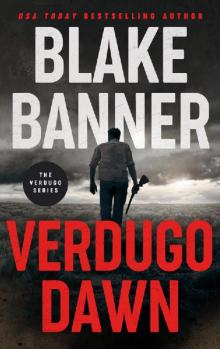 Verdugo Dawn
Verdugo Dawn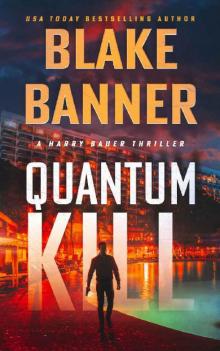 Quantum Kill (Cobra Book 4)
Quantum Kill (Cobra Book 4)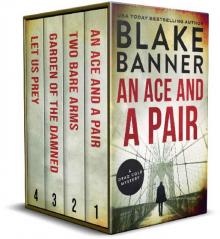 Dead Cold Mysteries Box Set #1: Books 1-4 (A Dead Cold Box Set)
Dead Cold Mysteries Box Set #1: Books 1-4 (A Dead Cold Box Set)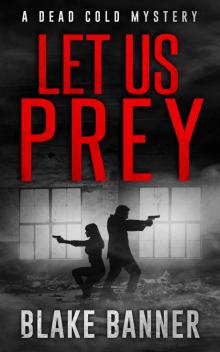 Let Us Prey
Let Us Prey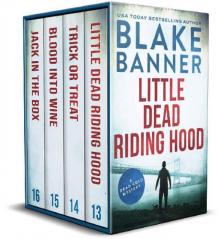 Dead Cold Mysteries Box Set #4: Books 13-16 (A Dead Cold Box Set)
Dead Cold Mysteries Box Set #4: Books 13-16 (A Dead Cold Box Set)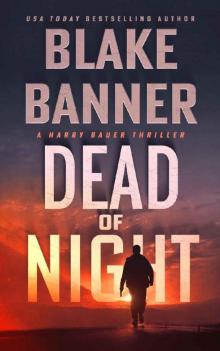 Dead of Night
Dead of Night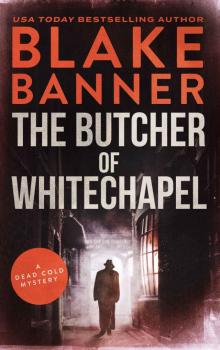 The Butcher of Whitechapel: Dead Cold Mystery 12
The Butcher of Whitechapel: Dead Cold Mystery 12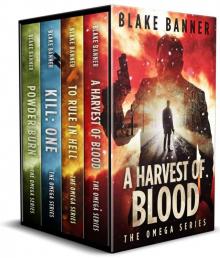 Omega Series Box Set 2
Omega Series Box Set 2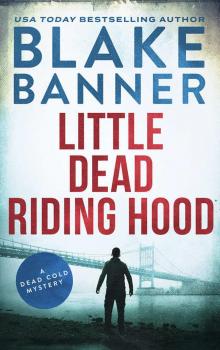 Little Dead Riding Hood: Dead Cold Mystery 13
Little Dead Riding Hood: Dead Cold Mystery 13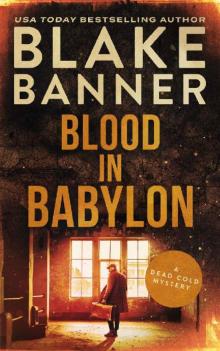 Blood in Babylon
Blood in Babylon Powder Burn
Powder Burn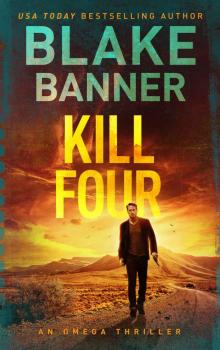 Kill Four
Kill Four Omega Series Box Set 3
Omega Series Box Set 3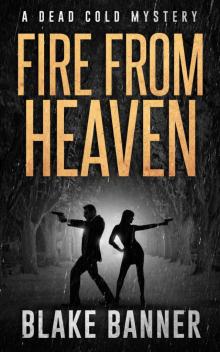 Fire From Heaven: Dead Cold Mystery 9
Fire From Heaven: Dead Cold Mystery 9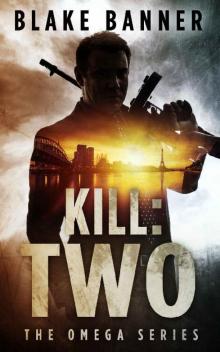 Kill - Two
Kill - Two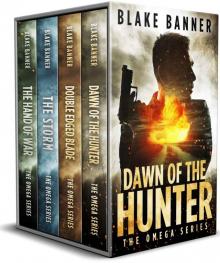 Omega Series Box Set 1
Omega Series Box Set 1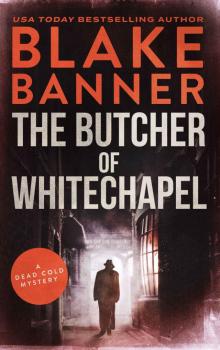 The Butcher of Whitechapel
The Butcher of Whitechapel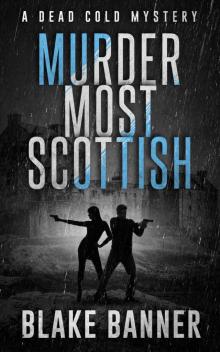 Murder Most Scottish
Murder Most Scottish Dead Cold Mystery Box Set 3
Dead Cold Mystery Box Set 3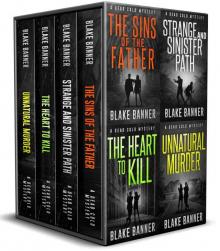 Dead Cold Mysteries Books 5-8
Dead Cold Mysteries Books 5-8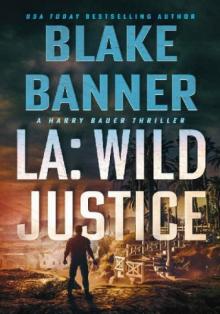 LA
LA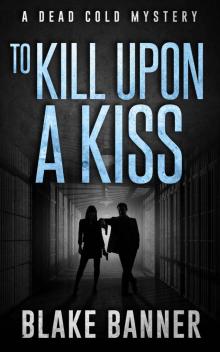 To Kill Upon A Kiss: Dead Cold Mystery 10
To Kill Upon A Kiss: Dead Cold Mystery 10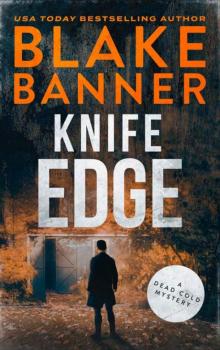 Knife Edge (A Dead Cold Mystery Book 27)
Knife Edge (A Dead Cold Mystery Book 27)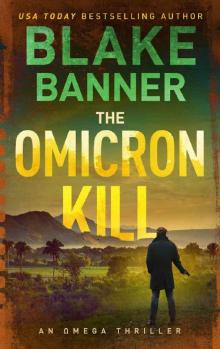 The Omicron Kill - An Omega Thriller (Omega Series Book 11)
The Omicron Kill - An Omega Thriller (Omega Series Book 11)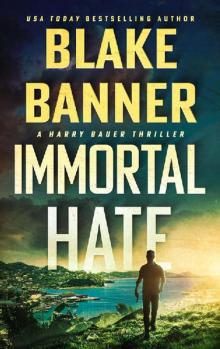 Immortal Hate (Harry Bauer Book 5)
Immortal Hate (Harry Bauer Book 5)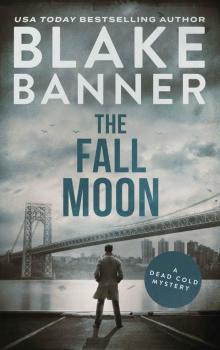 The Fall Moon
The Fall Moon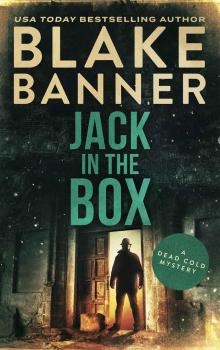 Jack in the Box
Jack in the Box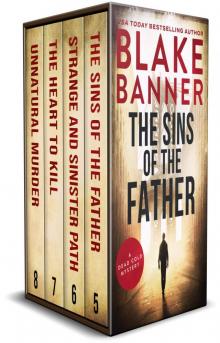 Dead Cold Mystery Box Set 2
Dead Cold Mystery Box Set 2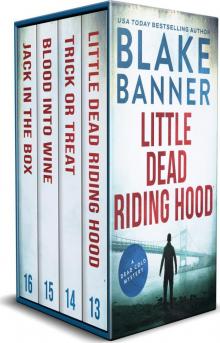 Dead Cold Mystery Box Set 4
Dead Cold Mystery Box Set 4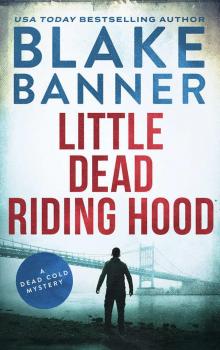 Little Dead Riding Hood
Little Dead Riding Hood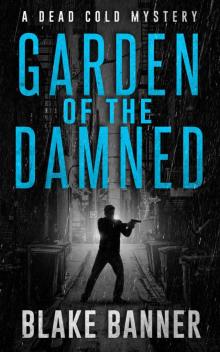 Gardened of the Damned
Gardened of the Damned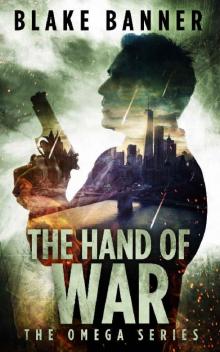 The Hand of War
The Hand of War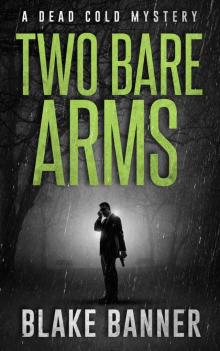 Two Bare Arms
Two Bare Arms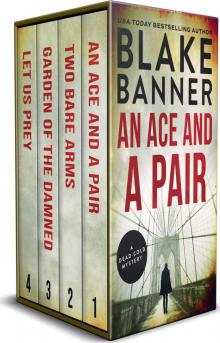 Dead Cold Mystery Box Set 1
Dead Cold Mystery Box Set 1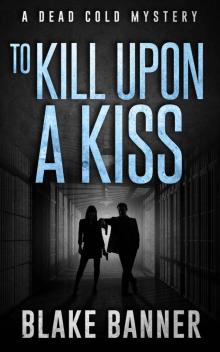 To Kill Upon A Kiss
To Kill Upon A Kiss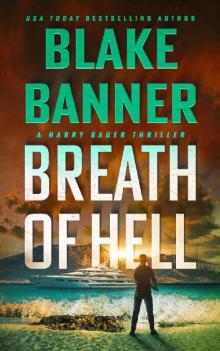 Breath of Hell (Harry Bauer Book 8)
Breath of Hell (Harry Bauer Book 8)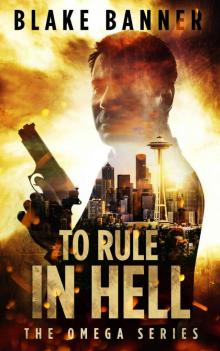 To Rule in Hell
To Rule in Hell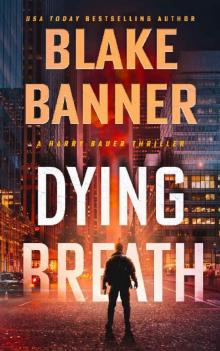 Dying Breath (Cobra Book 2)
Dying Breath (Cobra Book 2)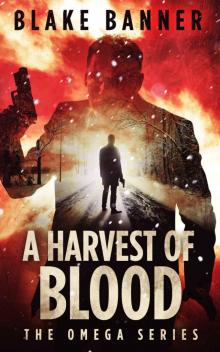 A Harvest of Blood - An Action Thriller Novel (Omega Series Book 5)
A Harvest of Blood - An Action Thriller Novel (Omega Series Book 5)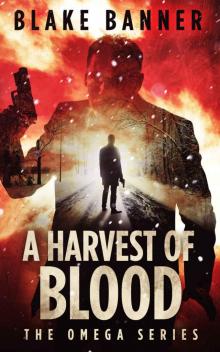 A Harvest of Blood - An Action Thriller Novel
A Harvest of Blood - An Action Thriller Novel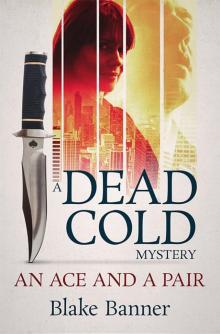 Ace and A Pair: A Dead Cold Mystery (Dead Cold Mysteries Book 1)
Ace and A Pair: A Dead Cold Mystery (Dead Cold Mysteries Book 1) Omega Series Box Set 3: Books 8-10
Omega Series Box Set 3: Books 8-10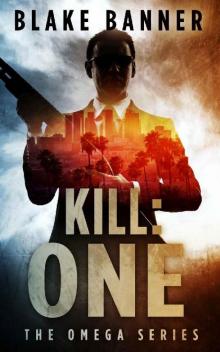 Kill One_An Action Thriller Novel
Kill One_An Action Thriller Novel The Storm
The Storm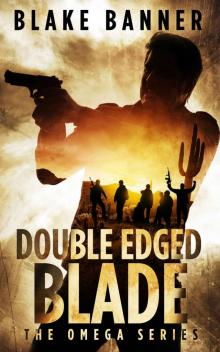 Double Edged Blade
Double Edged Blade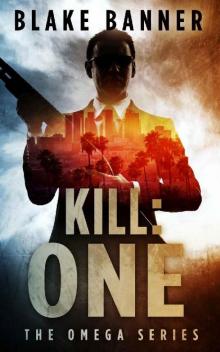 Kill: One - An Action Thriller Novel (Omega Series Book 7)
Kill: One - An Action Thriller Novel (Omega Series Book 7)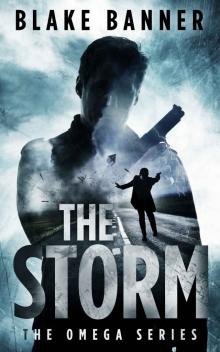 The Storm - An Action Thriller Novel (Omega Series Book 3)
The Storm - An Action Thriller Novel (Omega Series Book 3)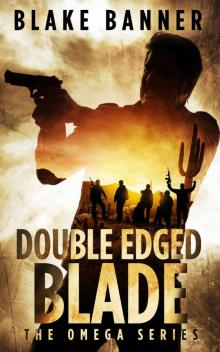 Double Edged Blade - An Action Thriller Novel (Omega Series Book 2)
Double Edged Blade - An Action Thriller Novel (Omega Series Book 2)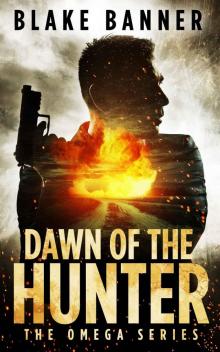 Dawn of the Hunter
Dawn of the Hunter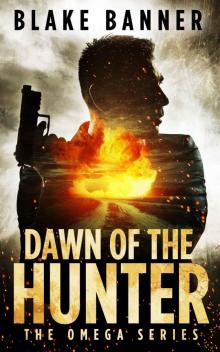 Dawn of the Hunter - An Action Thriller Novel (Omega Series Book 1)
Dawn of the Hunter - An Action Thriller Novel (Omega Series Book 1)